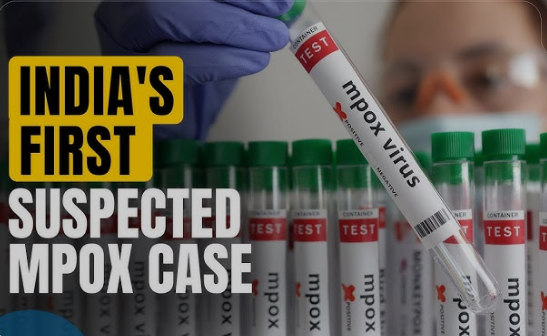In a concerning development, India has reported its first case of the highly transmissible clade 1b variant of mpox, formerly known as monkeypox. The case involves a 38-year-old man from Kerala who recently returned from Dubai. This case has raised alarms among health officials as it is linked to an ongoing outbreak in Africa, where the World Health Organization (WHO) declared mpox a public health emergency in August. The emergence of this variant, known for its rapid spread, underscores the urgency of vigilance and preparedness in managing infectious diseases.
Historically, mpox cases were rare, with only sporadic reports globally. However, in the past five years, there has been a significant rise in cases worldwide. In 2018, there were approximately 10 cases reported outside Africa. By 2022, that number surged to over 500 confirmed cases in various countries, including Sweden, Thailand, and Pakistan. This uptick has prompted international health organizations to increase surveillance and vaccination efforts, particularly as the US has pledged to deliver 1 million vaccine doses and over $500 million in aid to support Africa’s outbreak response.
The human angle of this outbreak is particularly poignant, as the man in Kerala exemplifies the interconnectedness of global health. Returning from abroad, he now faces the dual challenge of managing his health while also contributing to public health safety. Health experts emphasize the importance of personal responsibility in disease prevention, urging travelers to remain vigilant and report any symptoms promptly. This case serves as a reminder of the need for robust health education and awareness campaigns to prepare communities for potential outbreaks.
From a sustainability perspective, the mpox outbreak highlights the importance of global cooperation in health responses. The response to the current health crisis must incorporate strategies that not only address immediate concerns but also consider long-term health system strengthening. This includes improving healthcare access in underserved areas, enhancing disease surveillance systems, and ensuring equitable access to vaccines. Moreover, as global travel increases, countries must work collaboratively to implement comprehensive health policies that safeguard public health while fostering international trade and mobility. As the world grapples with the implications of the mpox outbreak, India’s first reported case serves as a critical wake-up call. With ongoing discussions about preparedness and response strategies, the case emphasizes the need for continuous investment in healthcare infrastructure and community engagement to mitigate the impacts of emerging infectious diseases


